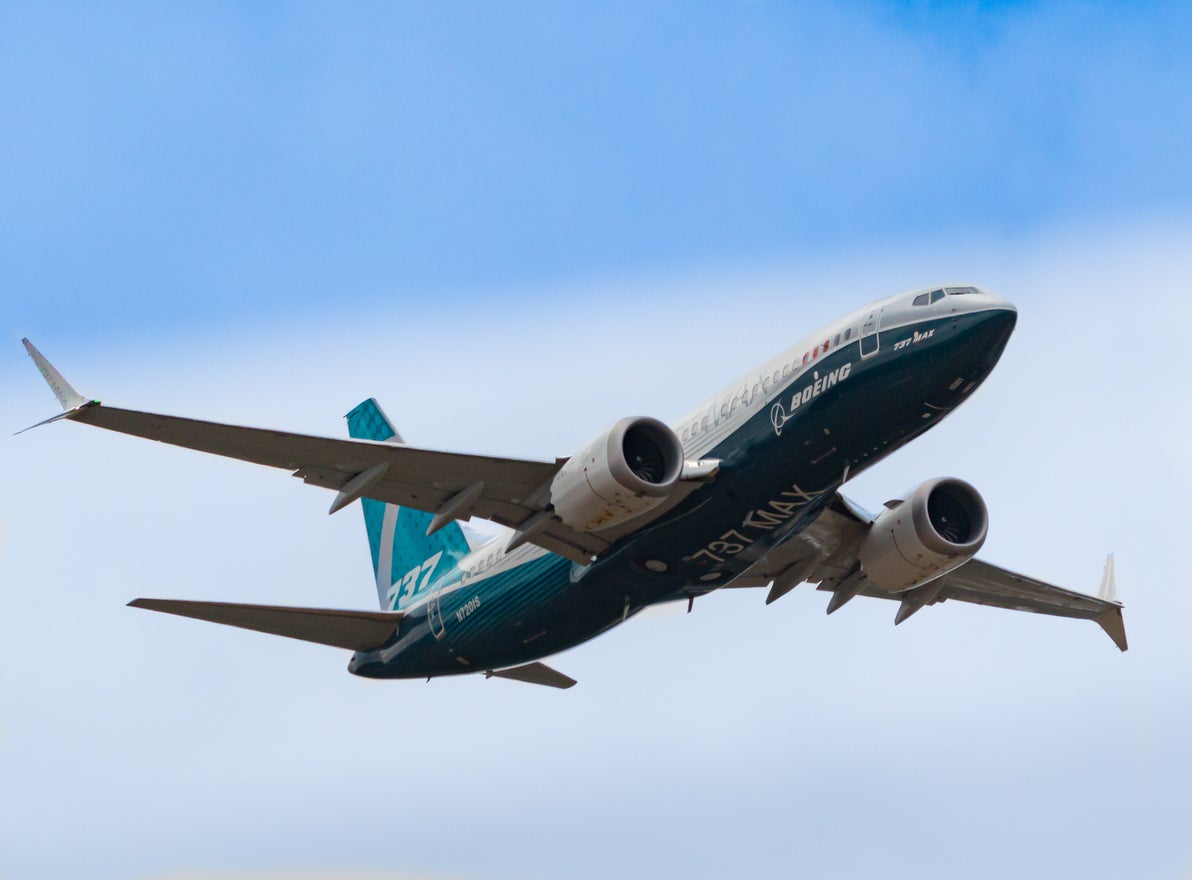Your support helps us to tell the story
From reproductive rights to climate change to Big Tech, The Independent is on the ground when the story is developing. Whether it's investigating the financials of Elon Musk's pro-Trump PAC or producing our latest documentary, 'The A Word', which shines a light on the American women fighting for reproductive rights, we know how important it is to parse out the facts from the messaging.
At such a critical moment in US history, we need reporters on the ground. Your donation allows us to keep sending journalists to speak to both sides of the story.
The Independent is trusted by Americans across the entire political spectrum. And unlike many other quality news outlets, we choose not to lock Americans out of our reporting and analysis with paywalls. We believe quality journalism should be available to everyone, paid for by those who can afford it.
Your support makes all the difference.Europe’s aviation regulator has said that the Boeing 737 Max is safe enough to return to the skies this year.
The European Union Aviation Safety Agency (EASA) conducted flight tests on the aircraft in September and had been reviewing additional data from its US counterpart, the Federal Aviation Administration (FAA).
While an official announcement hasn’t been made yet, the agency’s executive director Patrick Ky has said that EASA is expected to issue a draft airworthiness directive next month.
After that, there will be a four-week period for public comment.
However, Boeing is also expected to add a “synthetic sensor” to the Max jets, a software upgrade that could take 20 to 24 months.
The sensor is designed to make pilots’ jobs easier when one or both of the Max’s Manoeuvering Characteristics Augmentation System (MCAS) – the angle-of-attack sensor that was blamed for both Max jet crashes – fails.
The larger Max 10 aircraft will need this upgrade installed before its debut, slated for 2022, but it will also be retrofitted on other versions of the Max.
Ky told Bloomberg: “Our analysis is showing that this is safe, and the level of safety reached is high enough for us.
“What we discussed with Boeing is the fact that with the third sensor, we could reach even higher safety levels.”
The Boeing 737 Max, one of the best-selling models for the planemaker, has been grounded worldwide since March 2019 following two fatal crashes.
A recent damning report by the US House Committee on Transportation and Infrastructure said that “Boeing and FAA share responsibility for the development and certification of an aircraft that was unsafe”.
It continued: “For two brand-new airplanes, of a brand-new derivative model, to crash within five months of each other was extraordinary given significant advances in aviation safety over the last two decades.
“The Max crashes were not the result of a singular failure, technical mistake, or mismanaged event.
"They were the horrific culmination of a series of faulty technical assumptions by Boeing’s engineers, a lack of transparency on the part of Boeing’s management, and grossly insufficient oversight by the FAA – the pernicious result of regulatory capture on the part of the FAA with respect to its responsibilities to perform robust oversight of Boeing and to ensure the safety of the flying public.”




Join our commenting forum
Join thought-provoking conversations, follow other Independent readers and see their replies
Comments